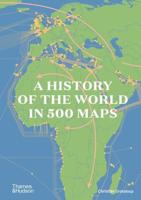Publisher's Synopsis
Historians have examined the American Civil War and its aftermath for more than a century, yet little work has situated this important era in a global context. Contributors to this volume open up ways of viewing Reconstruction not as an insular process but as an international phenomenon.
Here, three leading international scholars explore how emancipation, nationhood and nationalism, and the spread of market capitalism?issues central to the period in the United States?were interwoven with global patterns of political, social, and economic change. Rafael Marquese explores the integrated trajectories of slavery in the United States and Brazil, tracing connections between the coffee and cotton economies of both countries. Don Doyle discusses how Mexico's Maximilian regime harbored Confederate exiles after the war ended and posed the threat of a Confederate revival abroad. Edward Rugemer argues that Jamaica's Morant Bay Rebellion alarmed American politicians and affected Reconstruction policies.
This volume will start new discussions about how the Civil War reshaped the United States's relationship to the world and how large-scale international developments influenced the country's transition from a slaveholding to a free society.
A volume in the series Frontiers of the American South, edited by William A. Link








